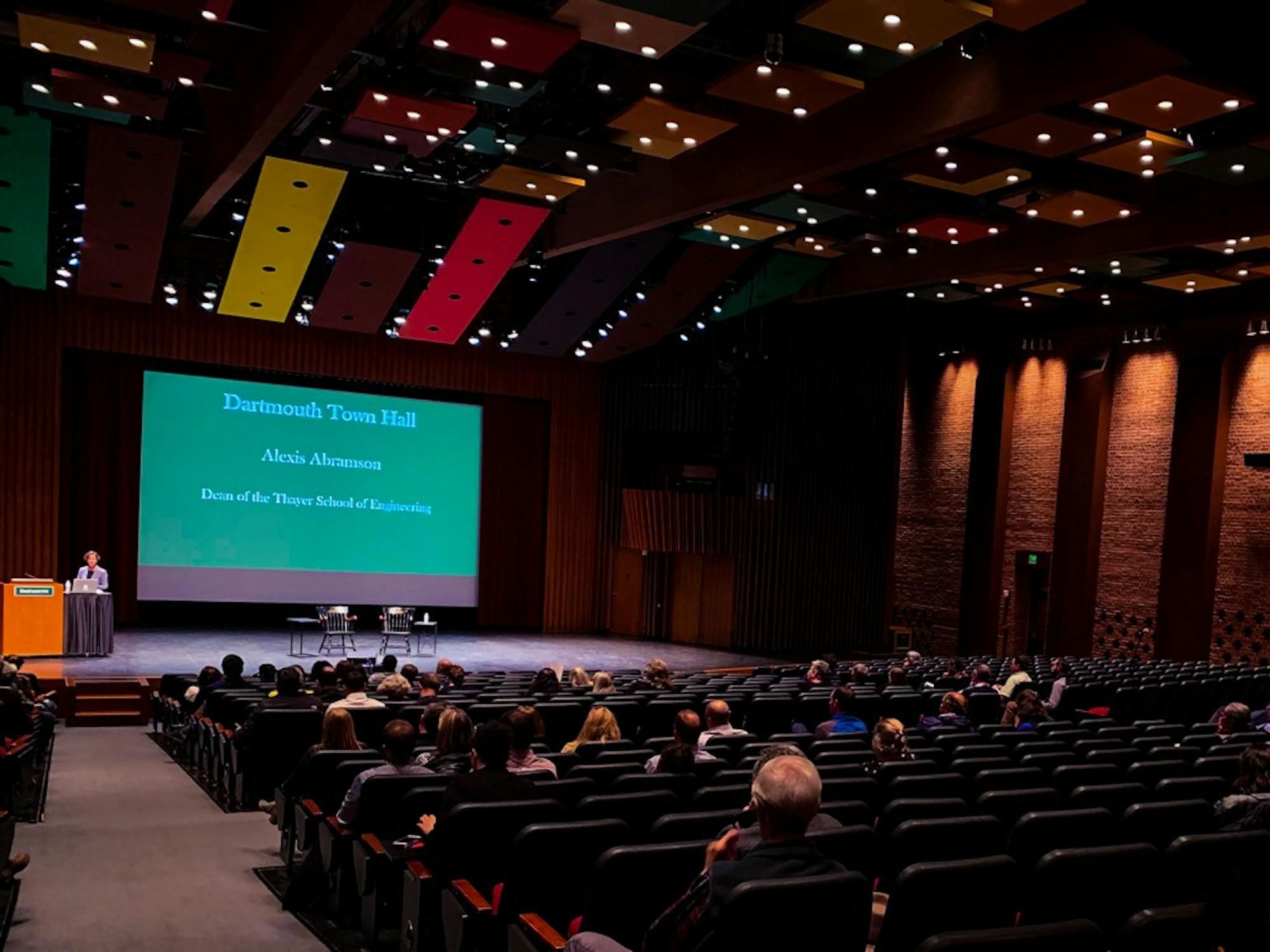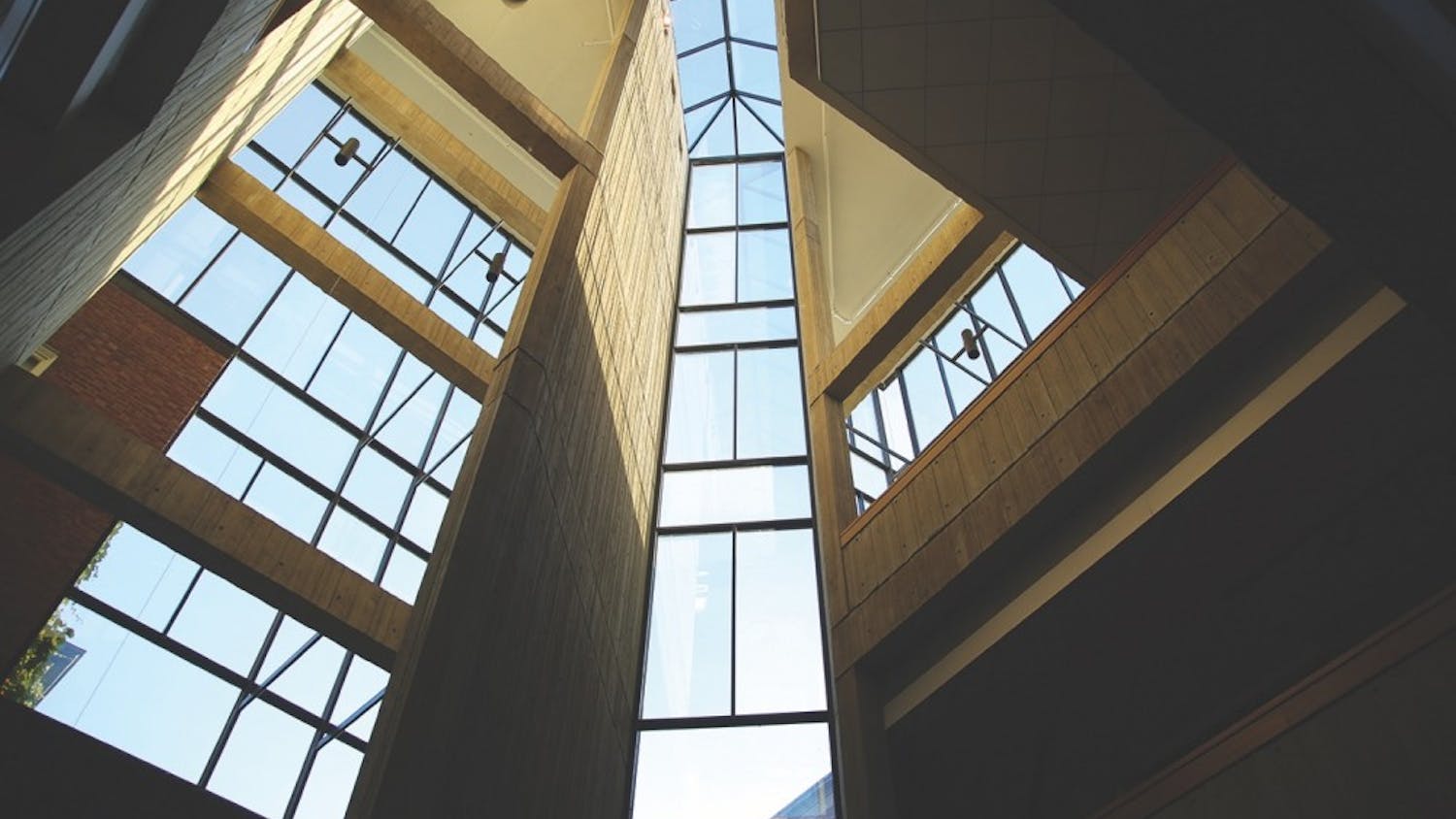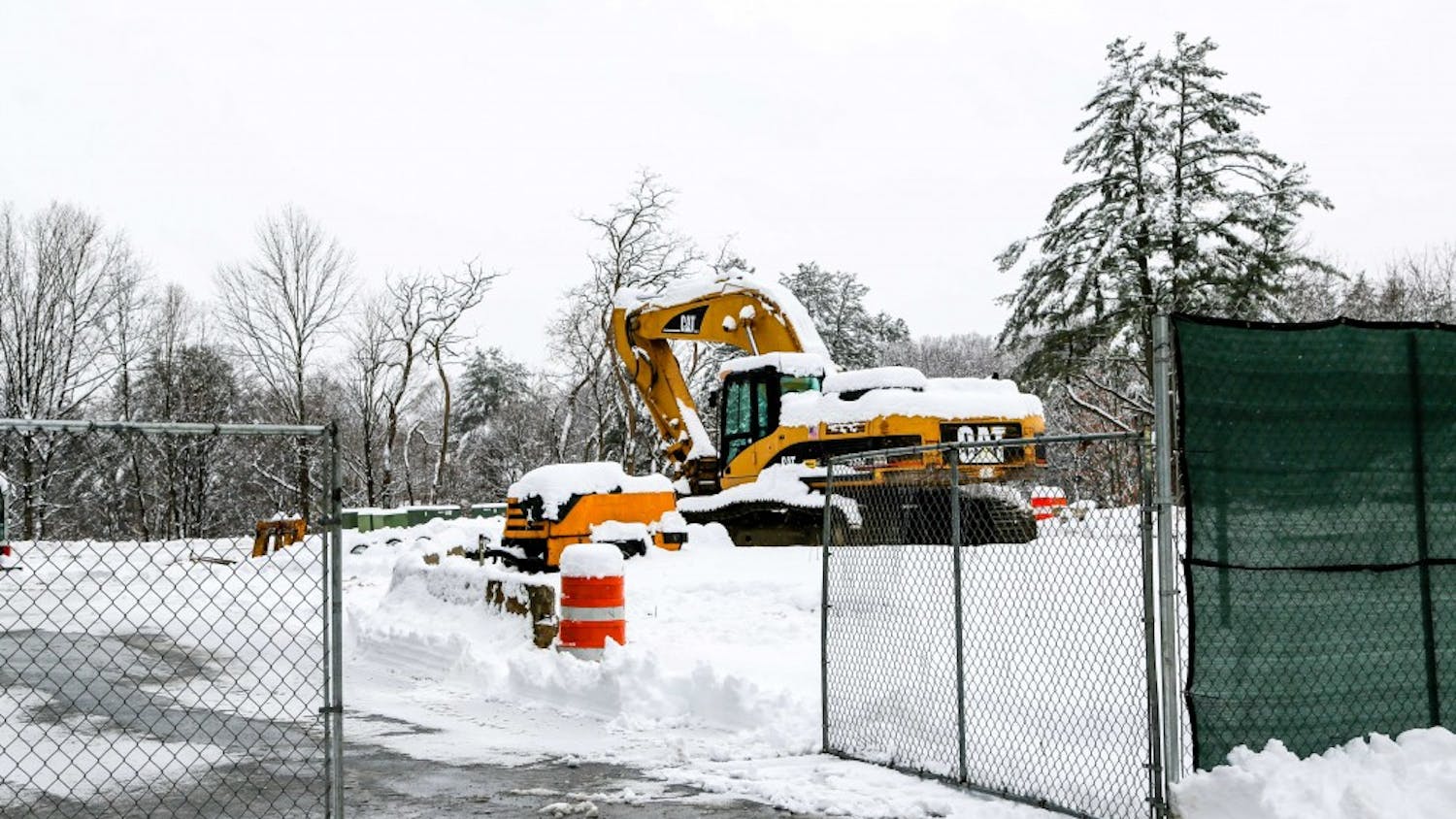Executive vice president and chief financial officer Rick Mills held a town hall in Spaulding Auditorium yesterday, covering topics ranging from the College’s Green Energy Project to the United Way Campaign. The town hall, attended by roughly 90 faculty, staff and community members, also featured a speech and question and answer session from Thayer School of Engineering dean Alexis Abramson.
Mills began by recognizing the recent death by suicide of professor and former department of psychological and brain sciences chair Dave Bucci, urging the attendees to seek out counseling resources provided by the College.
He then described the recent rollout of the College’s new sexual and gender-based misconduct policy and called attention to the dates of open forums where people may ask questions about the policy. He also announced that open enrollment, where faculty members choose their benefits, will open on Oct. 21.
Health and wellness program manager Courtney Rotchford and executive director of the office of the president Mimi Simpson, who are in charge of the United Way campaign this year, spoke about the opportunities for staff and faculty to contribute to the campaign’s goal: fundraising for Upper Valley social service organizations. Simpson said that mental illness, addiction, gender-based violence, educational disparities and a lack of ex-convict support systems were problems that need improving in the community, and Rotchford encouraged faculty and staff to make financial contributions or volunteer at a United Way-affiliated organization. The campaign kicks off on Oct. 29.
Director of planning Joanna Whitcomb then spoke about the campus strategic master plan.
“[Planning is] not a really sexy topic,” Whitcomb said. “I’m very passionate about it, and we’re doing some incredible work here on campus.”
The master plan is a yearlong initiative started last spring that seeks to plan Dartmouth’s future infrastructure several years in advance — the past several months were spent assessing buildings and getting feedback. In early winter, the plan will be available in draft form to garner more feedback before the final version is up for approval in the spring.
Whitcomb touted “an open, inclusive engagement process” that involved speaking to the campus and community members. She framed Dartmouth as a “seven-mile spine” which runs through the community from the Dartmouth-Hitchcock Medical Center to the Organic Farm.
Vice president for institutional projects Josh Keniston spoke about work on the Dartmouth Green Energy Project, which aims to reduce greenhouse gas emissions, move toward renewable fuel and upgrade aging infrastructure.
Keniston focused on the shift of the College’s heating and cooling system from steam power to hot water power, which he said is much more efficient. This shift allows energy to be generated in individual places on campus, in contrast to the more complex steam system.
Keniston also brought up the College’s wood biomass plant and the community’s largely negative reaction to the proposal, saying that there will be meetings with a working group and an advisory committee to reach a solution by 2020.
In a later question and answer session, local resident Dave Harrison ’92 commented on the biomass plant proposal.
“My biggest takeaway from all of this is Dartmouth should try and go to a non-combustion energy source for the heating plant,” Harrison said, encouraging Dartmouth to “put biomass in the rear-view mirror.”
Mills responded that the College wants to move toward a “non-combustion future.”
“The question,” Mills said, “is how fast, how hard and how do you balance the cost of that approach with the other things Dartmouth tries to accomplish, like doing research and educating students.”
In her remarks, Abramson praised Thayer’s “human-centered engineering approach to education,” citing its focus on group work and a more intimate faculty-student interaction.
Abramson said that she is excited about the new building that will consolidate the computer science department, much of Thayer and the Magnuson Center for Entrepreneurship in one building, as well as its proximity to the new Irving Institute for Energy and Society and Tuck School of Business.
Abramson also shared her ideas about increasing the amount of research completed, focusing on collaborations with companies, foundations and other universities. She also suggested expanding the number of faculty and Ph.D. students.
Abramson touted Thayer’s gender parity — roughly 50 percent of its graduates are women — and indicated a desire to improve the ranking of the graduate school and increase support for students who may require additional time to complete the bachelor’s degree in engineering.
She also addressed the priority of inclusion and diversity and praised a program called “50 Ways to Fight Bias” that helped educate Thayer’s Board of Advisors.
She added that faculty members who focus their impact on creating a company should be accommodated. She also proposed expanding the faculty size or creating a visiting faculty program at the school.
The next town hall meeting will take place on Jan. 8, 2020.




